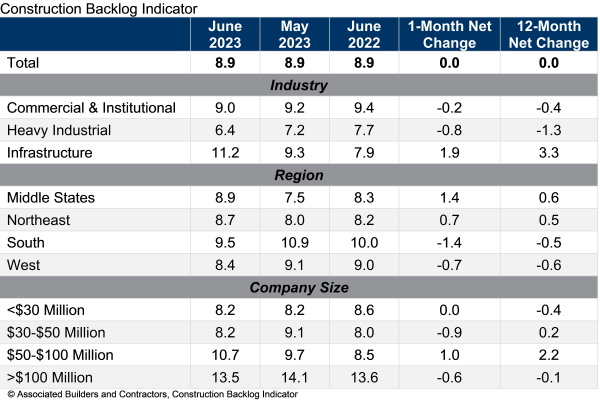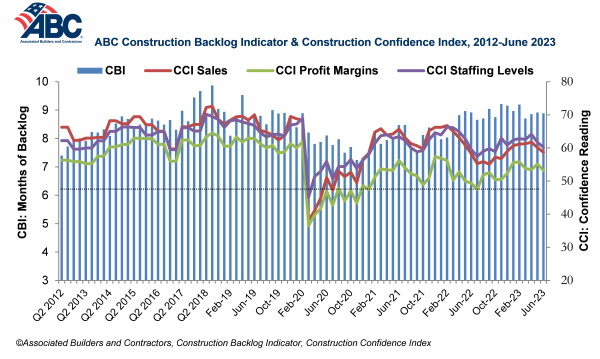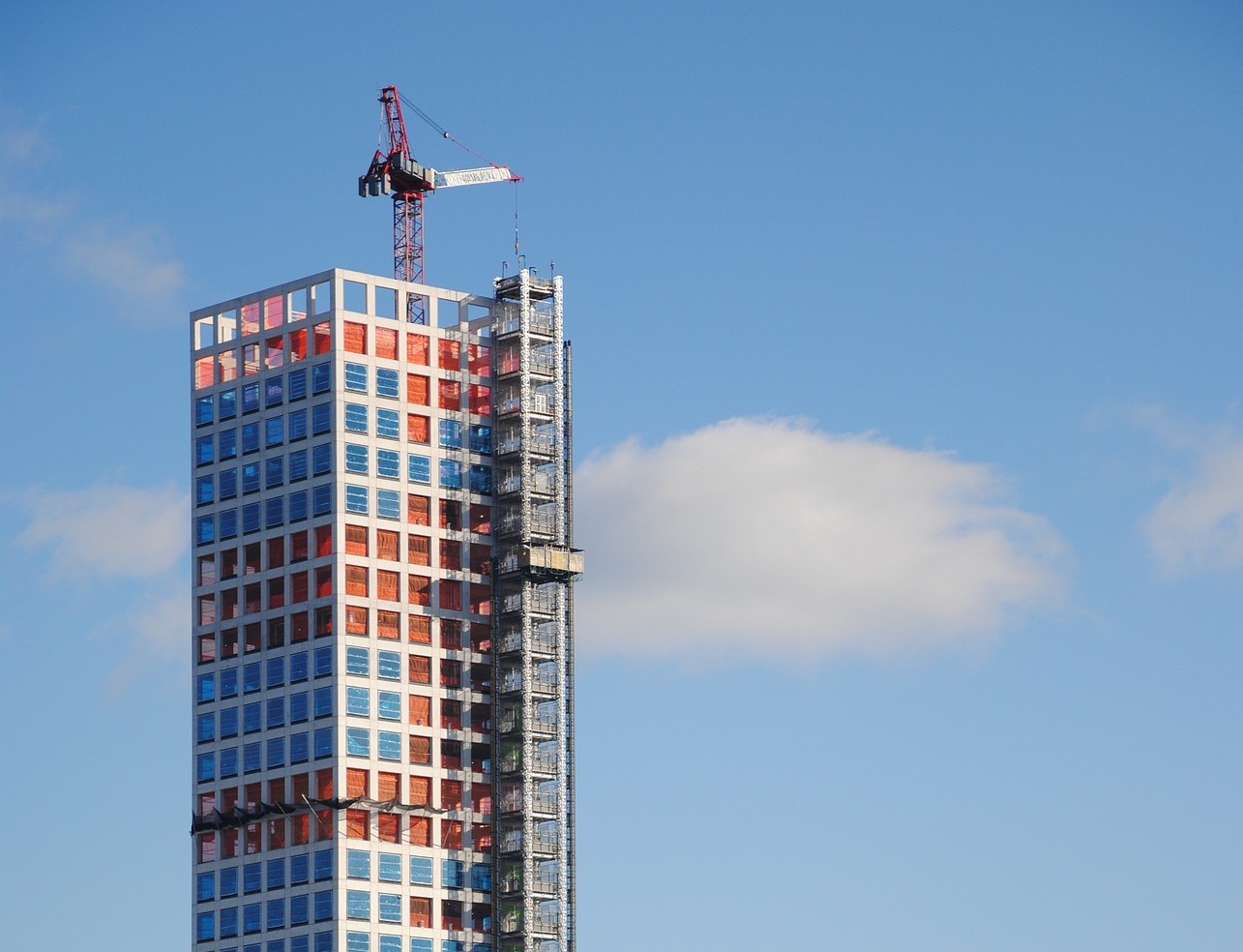Associated Builders and Contractors reported that its Construction Backlog Indicator remained unchanged at 8.9 months in June 2023, according to an ABC member survey conducted June 20 to July 5. The reading is unchanged from June 2022.
Backlog in the infrastructure category increased for the third straight month and is now at the highest level in nearly two years. On a regional basis, the South remains the region with the highest backlog, despite being the only region in which backlog declined in June.
“Backlog once again remained stable in June despite tight credit conditions and high interest rates,” said ABC Chief Economist Anirban Basu. “While those risk factors drove a decline in all three Construction Confidence Index series, contractors continue to signal an expectation that sales, profit margins and staffing will expand over the second half of 2023.
ABC’s Construction Confidence Index reading for sales, profit margins and staffing levels moved lower in June. All three readings remain above the threshold of 50, indicating expectations of growth over the next six months.
“Many aspects of the economy, including consumer spending and the labor market, held up better than expected in the second quarter,” said Basu. “That bodes well for economic growth over the summer, but also suggests that the Federal Reserve may raise rates higher and keep them there longer in their ongoing efforts to suppress inflation. All else equal, that will reduce construction activity in the quarters to come.”



Related Stories
| Aug 11, 2010
2009 Judging Panel
A Matthew H. Johnson, PE Associate Principal Simpson Gumpertz & HegerWaltham, Mass. B K. Nam Shiu, SE, PEVP Walker Restoration Consultants Elgin, Ill. C David P. Callan, PE, CEM, LEED APSVPEnvironmental Systems DesignChicago D Ken Osmun, PA, DBIA, LEED AP Group President, ConstructionWight & Company Darien, Ill.
| Aug 11, 2010
Inspiring Offices: Office Design That Drives Creativity
Office design has always been linked to productivity—how many workers can be reasonably squeezed into a given space—but why isn’t it more frequently linked to creativity? “In general, I don’t think enough people link the design of space to business outcome,” says Janice Linster, partner with the Minneapolis design firm Studio Hive.







